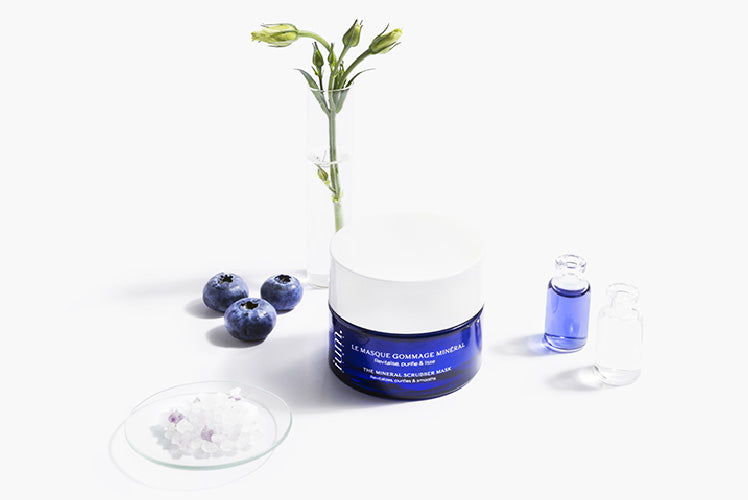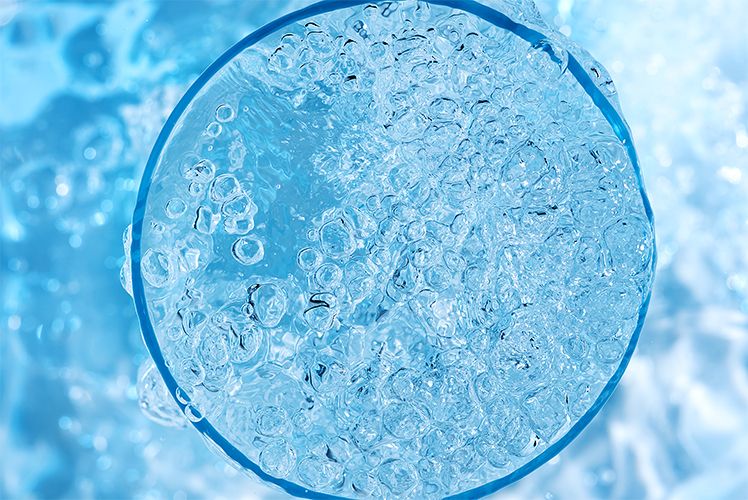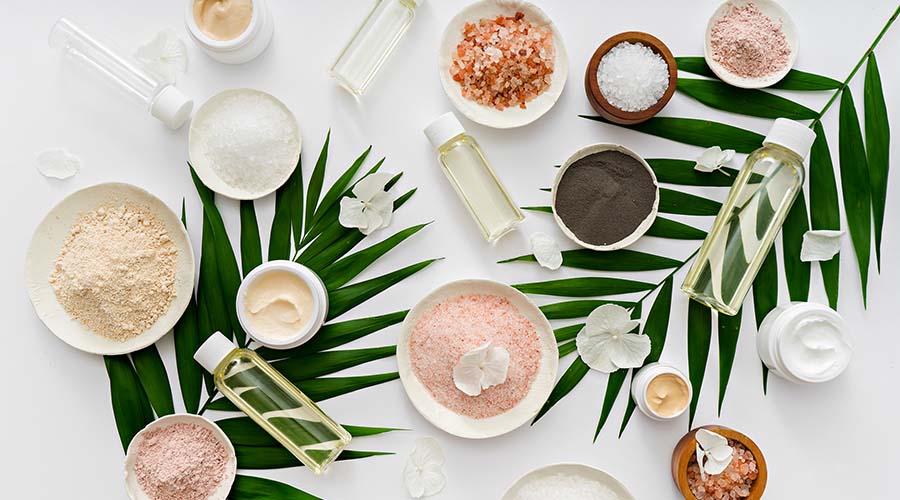Understanding cell renewal

We've all heard of cell renewal at least once. It's a phenomenon that consists in a cell's ability to renew itself rapidly. In the case of the skin, this is known as the keratinocyte process. With age, this process runs out of steam, causing a drop in the production of elastin and collagen, the proteins that give skin its firmness and elasticity. Gradually, visible effects appear: the appearance of fine lines and wrinkles, as well as a gradual loss of radiance and firmness.
Rest assured, there are ways to stimulate this process and keep your skin looking healthier and younger over time. Here's an overview of this much-talked-about phenomenon, which needs a few explanations.
UNDERSTANDING CELL RENEWAL
Did you know? Our bodies, like those of animals, have the capacity to renew most of their cells. This guarantees their preservation and proper functioning. Almost all our organs have cells capable of renewal, albeit over a variable period of time. Our red blood cells, for example, only live for around 120 days, and the cells lining our stomachs for several weeks.

In the case of our skin, the time it takes for cells to renew themselves is around 28 days. This time is important for healthy, luminous, hydrated and smooth skin.
The skin cell renewal process takes place in three stages: proliferation, maturation and cell death. During the first stage, skin cells multiply to replace those that have died. During the second stage, cells grow and differentiate to become mature cells. Finally, in the last stage, dead cells are eliminated to make way for new ones.
The formation of new skin cells, called keratinocytes, takes place in what is known as the basal layer of the epidermis (the deepest layer of the epidermis). As soon as they are born, they mature and are pushed upwards by new cells from the lower layers. When these cells reach the surface of the skin (called the stratum corneum), they keratinize (harden) until they die and detach.
This process of skin cell regeneration generally takes around 28 days; however, as we age this process slows down and is affected by external factors such as cold, pollution, stress, diet and products unsuitable for the skin. To ensure skin balance and promote regeneration, we recommend our Plumping Serum.
STIMULATE CELL RENEWAL
There are many factors that can affect the skin's cell renewal process. Age is one of the most important, but our lifestyles and ill-prepared exposure to the sun's UV rays can also cause skin damage, leading to accelerated skin aging.
There are several natural ways to stimulate the skin's cell renewal process:
-
Exfoliate regularly to remove dead skin cells and stimulate the production of new ones. The aim is to rid the skin of dead cells and other waste products that remain on its surface and contribute to suffocating it. In addition to dulling the face's natural radiance, this limits the penetration of applied skincare products. If it's mechanical, it's the grains it contains that will act when you gently massage your face. But be careful! If you massage too vigorously, you risk redness, especially if you have sensitive skin.
-
Facial massages: to boost cell regeneration, we work on improving blood circulation. There's nothing like a good daily facial massage to lift the face and improve firmness and elasticity. The golden rule: avoid massaging your face downwards (it does this very well on its own).
-
Get a good night's sleep: day and night, our skin is hard at work. While it acts as a shield against external aggressors such as pollution and UV rays during the day, once the sun goes down, it is busy regenerating cells and strengthening the epidermis. In fact, it's between 11 p.m. and 2 a.m. that the skin goes to work to regenerate itself. So strive for a healthy night-time routine. This is the time to give your skin the care it needs most!
-
Eat smart: foods rich in vitamin C are extremely conducive to boosting cell regeneration. By stimulating collagen synthesis and firmly combating free radicals, they enable our skin to gain in elasticity and vitality, while preventing the formation of fine lines. Eat a diet rich in citrus fruits, kiwis, peppers and cereals for radiant skin.
- Use products containing active ingredients such as Potassium, Calcium or Vitamin A, which have been proven to stimulate collagen and elastin production. And remember to use the most natural products possible, those that our cells know and recognize!
OUR ADVICE :
Let your skin breathe! In naturopathy, the skin is one of the 5 emunctories, i.e. the organs that eliminate the toxins our body accumulates during the day. This is why we recommend a cosmetic fast, whether in terms of skincare or make-up. In concrete terms, by leaving your skin bare, you'll optimize cell renewal throughout the day. Leave your skin alone for 1 day a month to restore its natural balance.
- YOU MIGHT LIKE THIS TREATMENT -
What do you need? Moisturize, Revitalize and Firm my skin! What is it? Repulpant Serum is enriched with natural Potassium and Sodium. An exclusive complex with stimulating and plumping power that respects your skin's natural balance. Our active ingredient...




